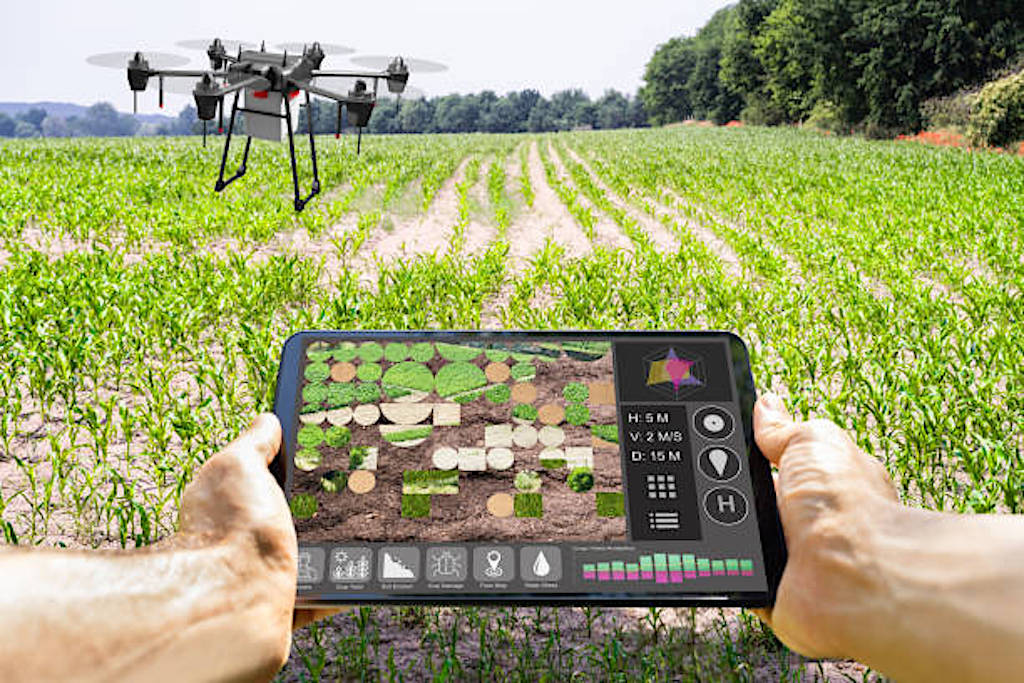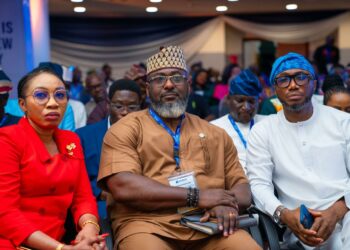The Nigerian government has officially taken over China-Aid Nigeria Agricultural Demonstration Center, a project funded by the Chinese government to boost the training of Nigerian farmers and enhance their capacity through technology and mechanisation.
The center, which was constructed by the Chinese government worth RMB 44, 100,000.00(over N2 billion) is located in the Ushafa village of the Bwari Area council of the Federal Capital Territory, which was officially handed over to the Nigerian government in brief ceremony conducted by the Chinese Embassy and the Ministry of Agriculture and Rural Development at the Area Council on Tuesday.
The project kicked off on March 8, 2021 and was completed on October 15, 2022. It will be operated by CGCOC Agricultural Development Ltd of China.
Speaking during the handover ceremony, the minister of state for agriculture and rural development, Mustapha Baba Shehuri, said the effort signifies collaboration between the Chinese government and the Nigerian government, stressing that China- Nigeria long -standing friendship has led to rapid and remarkable achievements between the two countries in the areas of economy, trade and other fields of life.
The minister, who was represented by acting permanent secretary, Daniel Udoh, said Nigeria is noted to be a large and leading agricultural economy and therefore has the pressing need for an agricultural technology and development centre especially for the youth.
He said, “This is what the Chinese government has done that led to the establishment of the centre that is being handed over today. The facilities at this centre are world class. They include; agricultural technology training and research centre, processing and exhibition centre, irrigation facilities, farmland demonstration areas among others.
“The objective of this project is to provide and transfer advanced technology to the youth as an enterprise. It is hoped that the centre will train local farmers using advanced technology to enhance their productivity and wellbeing. In addition, the centre will be fully integrated with local agricultural production to enable agricultural technicians adapt faster.
“The centre will help the beneficiaries to move from a small scale production model to a specialised agricultural production model and also from extensive farming to intensive production. I assure you that the Nigerian government will make good use of the centre for a more productive agricultural sector.”
Also speaking, the Chinese Ambassador to Nigeria, Cui Jianchun said transforming Nigeria’s agriculture remains a major priority of the Chinese government to ensure food security with the use of advanced technology.
“It is about food security and investment in agriculture, which is really very important not only for Nigeria but the whole African continent. So, today’s programme is about technology, about investment, about high -yield seed, about mechanisation. So, the Chinese government supports Nigeria to modernise agriculture.
“We need machines, we need technology, and we need high- yield seeds. So, this demonstration centre is a good project because it will not only give opportunities to farmers but will deepen our relationship,”he said.
The Chinese envoy added that his country lifted over 700 million people out of poverty even as he expressed optimism that with technology-driven agriculture, Nigeria can as well lift about 100 million Nigerians said to be languishing in abject poverty.
“Nigeria with China’s collaboration can also build a prosperous country in the next twenty years, from the agriculture sector to industry to especially the 4thindustrial revolution. So, this project is meaningful today. We believe there is great potential for Nigeria’s development. I hope in the future this centre can give us an example to sell Nigerian products to the Chinese market,” the envoy said.
The minister of state for finance budget and national planning, Clement Agba, who was represented by Fatima Sheji, of the Department of International Cooperation in the Ministry, said the China has been a reliable partner in the socio- economic development of Nigeria with several projects in partnership with federal and state governments in the country.
He said, “This project is coming at a time when the present administration is working to improve Nigeria’s capacity in agriculture to meet the international standards. The skills that will be acquired from the centre will also aid local farmers in maintaining modern agricultural production technology that will be sustainable over the years.
“The centre also touches on agricultural value chain and it addresses food insecurity, increases foreign earnings through export mechanisation, quality of seedlings and use of technology for information and research, and it will pave the way for self-employment and infrastructure development.”
However, despite the optimism that greeted the handing over of this well-equipped centre, there are some doubts about the ability of the Nigerian authorities to sustain the effectiveness of the project.
A public affairs analyst, who does not want his name in print, told our correspondent that handing over the project to the federal government was a massive boost for its infrastructure drive. He said however, that “the poor maintenance culture in the country, the corruption of public officers might hinder the project.”
He added that “the only hope now is that a Chinese firm will have to be involved in the operational activities of the project at least for now.”





